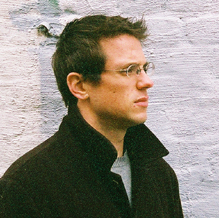 Wednesday, April 13, 2005
Wednesday, April 13, 2005
Sony BMG Masterworks
As part of restructuring their classical music division, Sony BMG announced yesterday the creation of a new classical label, Sony BMG Masterworks. With Gilbert Hetherwick at the helm, the label intends to "put the focus on classical music," which means putting a damper on the crossover projects that were once deemed the only way to sustain a classical line. Mr. Hetherwick reports directly to Sony BMG Music Entertainment's chief operating officer, Michael Smeille, who although professing to knowing nothing about classical music, registered some pretty insightful comments about crossover projects: I don't buy the reports that the classical record market is collapsing. It's just a question of recording the right repertory, marketing it convincingly and applying the right discipline. And in my view, getting rid of crossover allows people to be focused. Crossover distorts people's values. You have a record that sells a million copies, and the universe shifts towards finding the next one. That's not what we want to do.
Well, his comments about crossover are pretty insightful, but one wonders who he's trying to kid with that first sentence. (And maybe what he means by "marketing it convincingly" is to use "babeness" as a strategy. What do you think, Jerry?) At any rate, although the label intends to support classical music and not crossover artists, classical music means the core classical repertory. So expect new releases of the same old stuff, only this time mined from the back catalog of the combined label, in the form of reissues. In fact, over 100 releases a year would most likely be reissues, compared to the 20 to 25 new recordings.
And where's new music in this equation? Not completely absent, although it would be nice to see contemporary composers get a bigger slice of the major record label pie. Contemporary music will have to be happy being marginalized, for the most part, to the internet ghetto: [The internet] would be ideal for some of the contemporary-music recordings that Sony has: avant-garde productions from the 1960s that are important but that we couldn't afford to remaster, put into a plastic box and sell in stores.
Huh? If they're important, why not remaster them, put them into a plastic box and sell them in stores? Or how about just putting them into a plastic box and selling them in stores? It's important to note here that any sort of attention to new music that the label will pay, is attention to "old" new music, rather than "new" new music. Mr. Hetherwick says some things that make me jump for joy, but he also says some things that leave me scratching my head.
posted by Brian Sacawa
1:48 AM
|
|
 Praised by The New York Times as "an inventive musician . . . fresh and surprising," saxophonist Brian Sacawa has firmly established himself as an important contemporary voice for his instrument. He is active as a soloist, recitalist, and chamber musician throughout the United States and is the co-founder of the new music duo Non-Zero with percussionist Timothy Feeney.
Praised by The New York Times as "an inventive musician . . . fresh and surprising," saxophonist Brian Sacawa has firmly established himself as an important contemporary voice for his instrument. He is active as a soloist, recitalist, and chamber musician throughout the United States and is the co-founder of the new music duo Non-Zero with percussionist Timothy Feeney.
He has given premieres of over thirty works by both established and emerging composers, including Michael Gordon, Bright Sheng, Andrew Mead, Oliver Schneller, Ken Ueno, Beata Moon, Hillary Zipper, and Scott McAllister, among many others. Named the Baltimore CITYPAPER’s Critic’s Choice for Classical Music in 2002, he is the recipient of awards for solo performance from both national and international competitions.
Sacawa's versatile career has led to appearances with the St. Petersburg Philharmonic, the Detroit Symphony Orchestra, the New World Symphony, Harvard Group for New Music, New Music Brandeis, Bargemusic, and at meetings of the ISU Contemporary Music Festival, World Saxophone Congress, North American Saxophone Alliance, and New England Saxophone Symposium.
Brian holds degrees from the University of Michigan, the Peabody Conservatory, and the University of Massachusetts – Amherst, where he studied with Donald Sinta, Gary Louie, and Lynn Klock. He has recorded for the Equililbrium, Naxos, and BiBimBop recording labels.
See Brian's other blog
Sounds Like Now
| |



